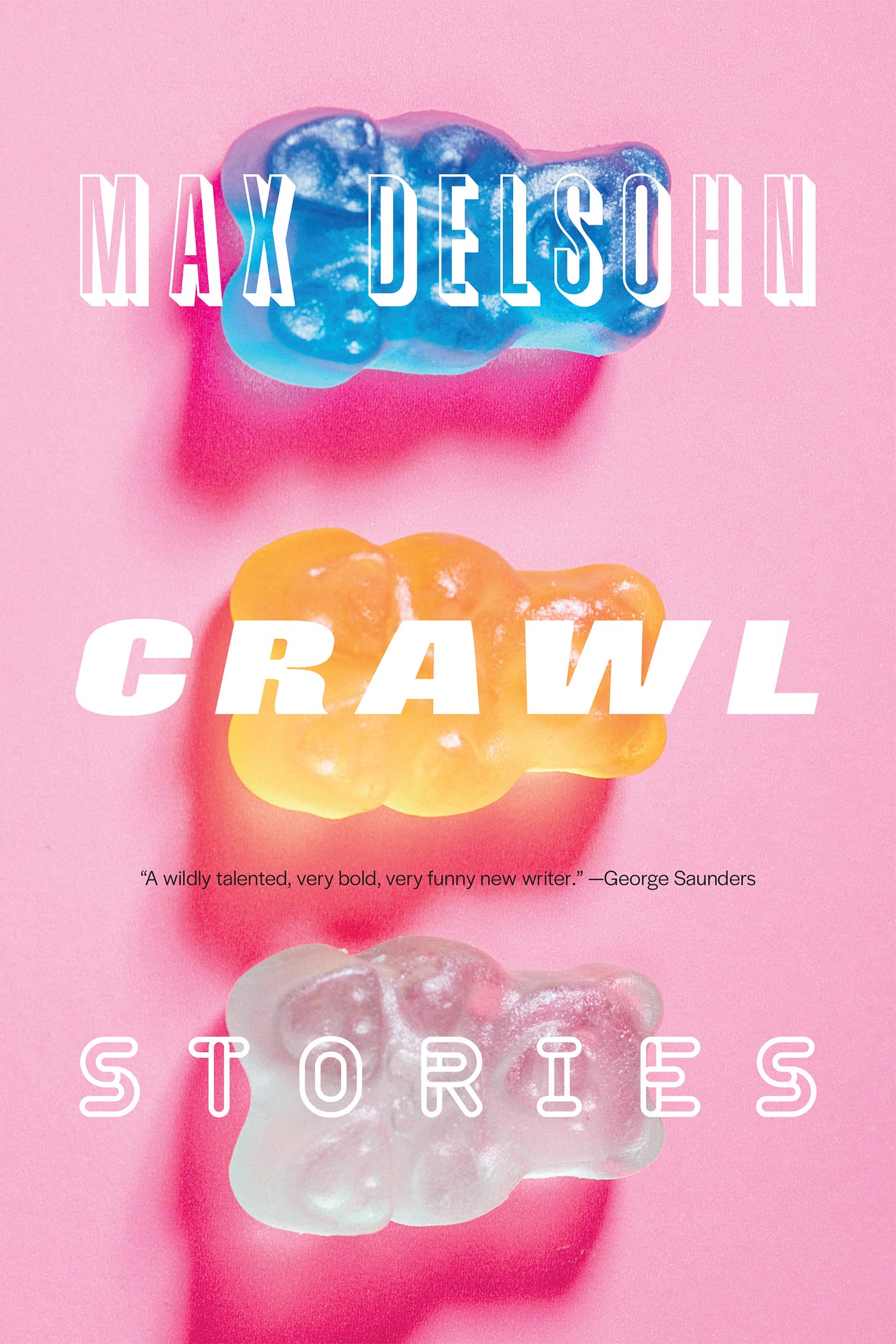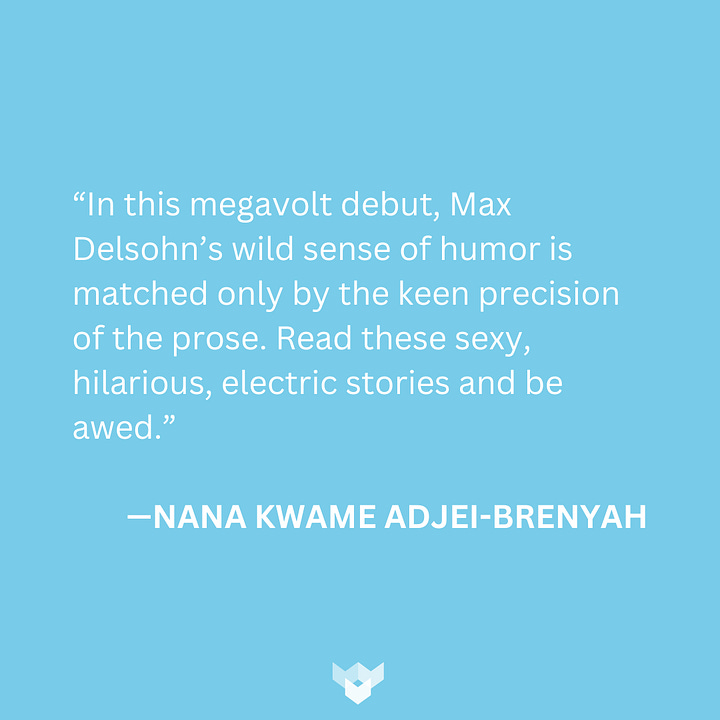This is the email in which I tell you that my book is coming out in one month (October 21st, 2025) and that there are multiple, concrete steps you, yes, YOU, can take to ensure its enduring success. Every little thing counts, every little thing moves the needle on sales, exposure, and my chances of one day being invited to talk about my book on late-night TV, should late-night TV continue to exist through coming weeks. I will give you those action items in a second—feel free to scroll there now, in fact, because I am about to miserably attempt to put my book in today’s political context.
I am hundreds of years old. I may not look it, but I have been alive for hundreds of years. And it is for this reason that I am able to so expertly keep my eyes on eternity when it comes to my work. Hopefully I go viral on TikTok or something before the book comes out and the launch makes a big splash—if you have the power to make Crawl go viral on TikTok, please do so, and hurry—but it is far more important to me that this book is one that endures. I don’t know what the future holds for trans people in America. I don’t understand what role trans art has played, is playing, or will play in that future. All I know is I tried to write the book I wanted to read—lyrical, realist fiction exclusively about transmasculine people. I wanted a book that honestly, rigorously depicted a present-day transsexual man’s consciousness.
I wanted literature about trans men because I didn’t know how to think about myself when I transitioned. All I had was desire, raw and immediate and wordless and true. The desire for women, then the desire for men. Desire is undeniable; a truth of the body. I have been obsessed with the concept of truth for as long as I can remember—as a trans person with OCD, how could I not be? Truth is elusive when you have OCD. You can’t trust yourself to know what’s true all the time. Did I lock the front door? Am I really straight? Am I really cis? Truth is mandated when you are trans. Are you sure you want to transition? Does your therapist agree? I didn’t have the language. All I had was desire. With this book, I tried to put language to desire—the desire for sex and romance, the desire to be understood, the desire for respect, the desire for privacy, the desire for safety, the desire for certainty, the desire for peace, the desire to live as a man.
There will always be trans men, and trans men will always have to confront the task of executing their vision of ideal manhood for themselves. I hope this book is one trans men everywhere can look to for ways to think about their lives and their place in their communities. I understand the situation for trans people in America is very bad right now and not exactly poised to improve. My book is not for the people who are responsible for escalating the bad situation. My book is for trans men, now and in the future.
Okay, okay, the not-trans-men reading this? The book is for you, too. All the stuff anyone comes to literary fiction for—beautiful sentences, surprising insights, bonafide freak shit—is the stuff of Crawl. Hopefully the blurbs from George Saunders, Torrey Peters, Carmen Maria Machado, Andrea Lawlor, Mona Awad, Nana Kwame Adjei-Brenyah, Dana Spiotta and Grace Byron have convinced trans men and not-trans-men alike. But if you’re thinking I paid these people off or something, you might be swayed by this starred review in Kirkus Reviews or this glowing endorsement from Publishers Weekly. You could wait until the tour, I guess—it’s shaping up to be a 13 city marathon, featuring events in New York City, Portland, Seattle, Los Angeles, Boston, Syracuse, Austin, Seattle (again!), Ann Arbor, Madison, Chicago, and Las Vegas, among others. If you’re STILL not convinced the book is inarguably good, well, stay tuned on Instagram, because I’ve got more shit to brag about that I can’t share yet.
All of the above is very promising for Crawl's success. However, the best shot this book has of exploding onto the scene and finding readers far and wide is in your hands. Here’s what you can do now and/or when the book comes out next month:
Preorder from your local bookstore. Listen, I know we’ve already done this. If you’ve already preordered, THANK YOU, I LOVE YOU. If you haven’t, please specifically preorder from your local bookstore, because it will help convince the bookstore that my book is good and that they should stock it. Don’t have a local bookstore? Get it from one in Seattle, then, where every story in Crawl takes place. I recommend Elliot Bay Book Company and Third Place Books, who are hosting me for my two Seattle-based launch events. Bookshop.org is good, too. Crawl is a paperback original, which means it only costs $17 before tax. $17 is how much I paid for a sandwich in Santa Monica yesterday. A sandwich! It was a good sandwich, but come on.
Request the book through your local library. You’ve got a library card, right? RIGHT?? Well, go to the little website for your library and see if they’ve ordered Crawl. If they don’t already have it, put in a request. If they do have it, check out the book! If you forgot how to read on purpose, a choice for which I’d fault no one, that’s completely fine. Don’t even read the book, whatever, just check it out from the library and then return it later. Checking out the book from the library boosts library sales, which are a huge deal.
Rate the book on Goodreads or The StoryGraph. Seriously, you don’t even have to write anything if you don’t want to, just rate it—or you can shitpost, I don’t care. I mean, I really care about the wonderfully generous reviews I have already received on Goodreads/The StoryGraph, and I will really care if you write something wonderfully generous. But if you just write, like “lol this rocked” or “sickos.jpg” and give Crawl five stars, I’ll think that’s awesome. Not as awesome as this review, for instance, but still very, very awesome.
Post. Yes, I am calling on you to Post. I don’t care how many followers you have or on what platform. Please, for the love of God, if you like the book, just post. My ideal post about the book is trans men taking shirtless selfies with physical copies. That is a pretty specific ask, I know, but somebody already did this and now I am hungry for more, so I’m going to put it out there. If you need an excuse to post a thirst trap, I am begging you to make my book your excuse. If that’s not your speed, post a photo of a page or paragraph you like. Post a tirade about how much you hate the book on your Instagram story or your Blogspot. PLEASE, PLEASE, PLEASE… DON’T PROVE I’M RIGHT/POST!!!!
All right. I think that’s plenty for now. I will tentatively plan to send another newsletter on or around pub-day, which I’ll remind you is Tuesday, October 21st. I’ll have more stuff to brag about and maybe more tour dates to announce. You can learn how to RSVP to various book events/generally keep track of the tour here. In the meantime, be kind to yourself.







